One of, if not the oldest visible form of life, to which we owe much of our original Oxygen rich environment, these Stromatolites are under threat.
Agriculture has threatened an area holding an exceptional array of microbes.
One of, if not the oldest visible form of life, to which we owe much of our original Oxygen rich environment, these Stromatolites are under threat.
Agriculture has threatened an area holding an exceptional array of microbes.
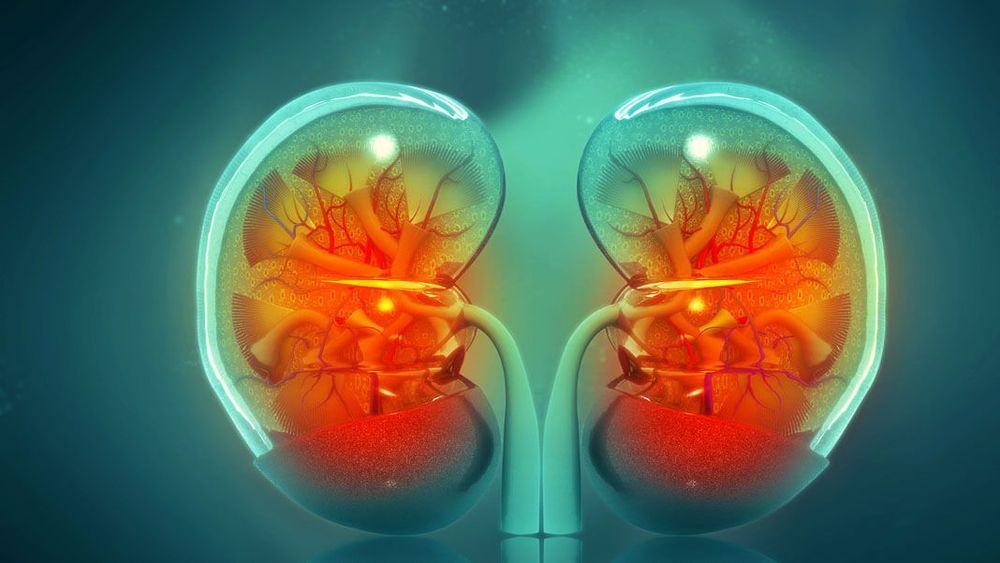
Our kidneys are crucial for keeping us alive and healthy. A sort of chemical computer that keeps our blood chemistry stable—whether we’re eating a sugary birthday cake or a vitamin-filled salad—they prevent waste buildup, stabilize our electrolyte levels, and produce hormones to regulate our blood pressure and make red blood cells.
Kidneys clean our blood using nephrons, which are essentially filters that let fluid and waste products through while blocking blood cells, proteins, and minerals. The latter get reintegrated into the blood, and the former leave the body in urine.
Scientists have struggled to come up with viable treatments for kidney disease and renal failure, and their complexity means kidneys are incredibly hard to synthetically recreate; each kidney contains around one million intricately-structured nephrons.
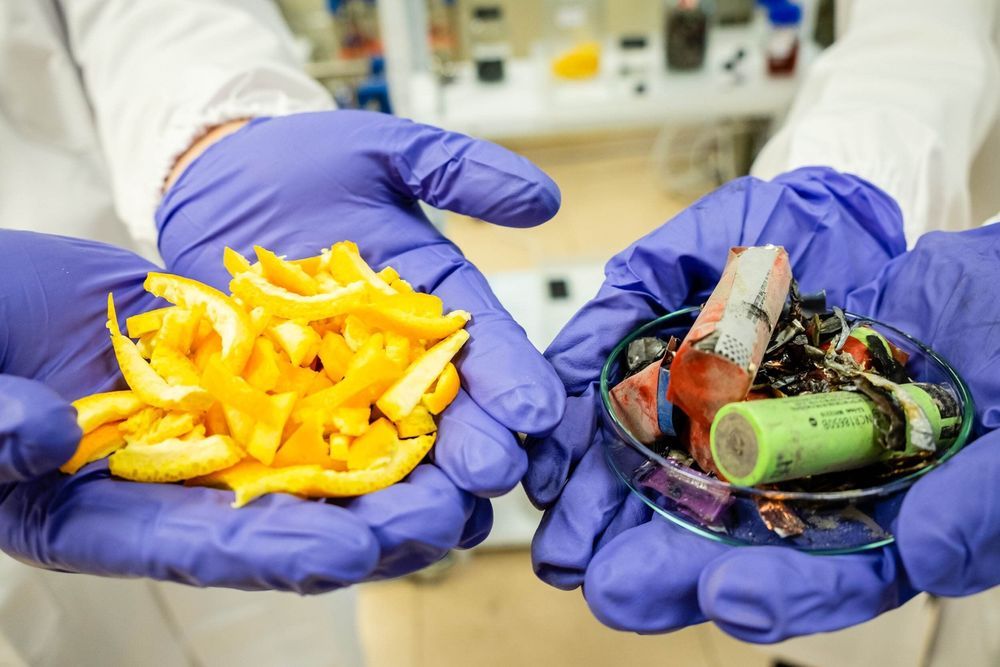
Scientists led by Nanyang Technological University, Singapore (NTU Singapore) have developed a novel method of using fruit peel waste to extract and reuse precious metals from spent lithium-ion batteries in order to create new batteries.
The team demonstrated their concept using orange peel, which recovered precious metals from battery waste efficiently. They then made functional batteries from these recovered metals, creating minimal waste in the process.
The scientists say that their waste-to-resource approach tackles both food waste and electronics waste, supporting the development of a circular economy with zero waste, in which resources are kept in use for as long as possible. An estimated 1.3 billion tons of food waste and 50 million tons of e-waste are generated globally each year.

Circa 2011
This gorgeous, stainless steel and bronze toy car is simply named Toy Car, which seems an appropriately stripped-down name for such a minimalist vehicle. Without a body, or even a cover over the engine, you can see exactly how the car works.
It’s essentially a fancy version of the pull-back-and-go cars found in cereal boxes and kids’ fast-food “meals” everywhere. Pull the car backwards while pushing down and the motion of the turning wheels is stored as energy in a coiled spring inside the big central toothed wheel. Let go and it unwinds, propelling the machine forward. When the spring has fully sprung, a clutch disengages and lets the car roll free.
You’ve read your last complimentary article this month. To read the full article, SUBSCRIBE NOW. If you’re already a subscriber, please sign in and and verify your subscription.
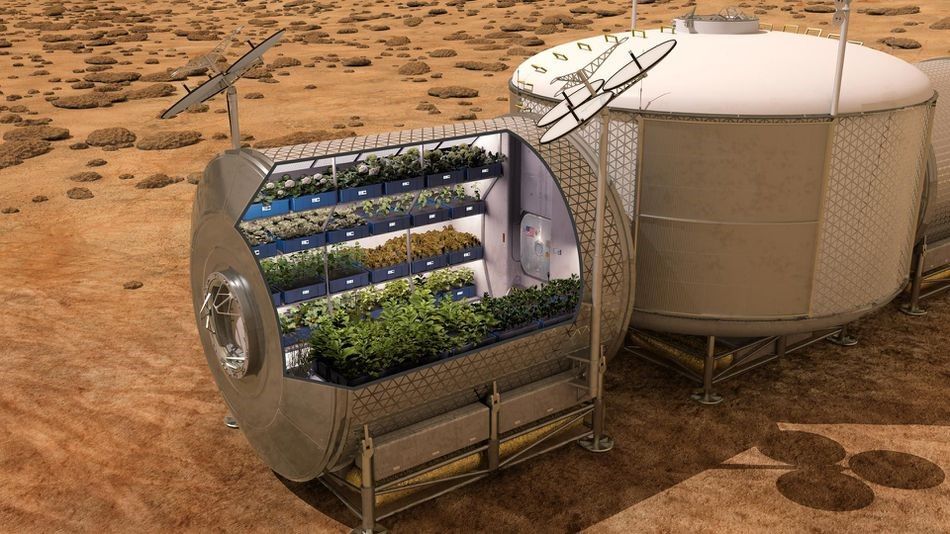
In The Martian, Matt Damon’s character is able to survive being marooned on Mars by growing potatoes in the Martian soil. While fictional, this plot point reflects a real need for in-situ resource utilization (ISRU) to support long-term human space exploration missions. A new study by a team from the Florida Institute of Technology suggests that the Martian soil may be more hostile to plant life than previously thought and that the capability of growing Martian potatoes will require additional development to make agriculture feasible.
The researchers studied three examples of Martian regolith simulants. These simulants are produced from materials found on Earth to reproduce the mineralogy and chemistry of the soil we expect to find on Mars. They found that none of these simulants were able to support plant life on their own, partly due to nitrogen deficiency, and only two were able to do so when nutrient supplements were added. More crucially, none of these simulants could support plant life at all when calcium perchlorate — a common, and toxic, substance on Mars’s surface — was added. Their results suggest that any scheme for ISRU agriculture on the surface of Mars must plan to remediate, or otherwise avoid, the toxic effects of perchlorate before attempting an extraterrestrial harvest.
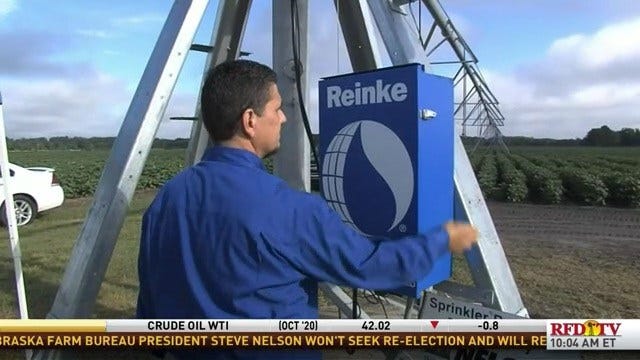
Innovation is key for developing the future of agriculture and sometimes it comes from unlikely places.
The NASA Artemis Mission is working to develop space exploration, but here on Earth, they are partnering with the University of California Berkeley to use Land Satellite Seven to benefit agriculture.
According to NASA Administrator Jim Bridenstine, “We can use that data from space and combine it with weather stations from Earth, and we can get very precise evapotranspiration measurements, down to a quarter of an acre. What that means is we can provide farmers with very specific irrigation plans.”
The technology is still in the testing phase but could one day make farming a little easier. “Imagine being a farmer and going out into your field with your iPhone, looking at it and having an app on there that tells you exactly what your irrigation needs to be for this quarter of an acre for this type of soil and this type of crop,” Bridenstine states.
NASA looks to partner with private businesses to bring new technologies to the market. “The challenge is land sat only has a revisit of two weeks,” he notes. “Weather changes a lot in two weeks; so, I think there is a future where a commercial company could create lots of satellites that could provide this data to farmers.”
Another project on the International Space Station, called Eco-Stress, measures heat stress in plants using infrared technology. Both projects hope to answer a key question: “Can we use our earth science capabilities to feed more of the world and save water in the central valley of California, and the answer is— yes we can.”
Here’s my latest video!
Maximal lifespan in calorie restricted (CR) mice can range from 45 — 55 months. In this video, I present data for 3 studies on rapamycin-can it beat CR for maximal lifespan?

Scientists at the Department of Energy’s (DOE) Argonne National Laboratory have developed a light-activated coating for filtration membranes—the kind used in water treatment facilities, at semiconductor manufacturing sites and within the food and beverage industry—to make them self-cleaning, eliminating the need to shut systems down in order to repair them.
Cheap and effective, water filtration membranes have been around for years but have always been vulnerable to clogging from organic and inorganic materials that stop up its pores over time, a phenomenon known as fouling.
“Anything you stick in water is going to become fouled sooner or later,” said Argonne senior scientist Seth Darling.

Scientists investigating Alzheimer’s treatments at the Salk Institute have uncovered some key mechanisms that enable an experimental drug to reverse memory loss in mouse models of the disease. The discovery not only bodes well for the possibility of clinical trials, but provides researchers with a new target to consider in the wider development of compounds to counter the degenerative effects of the condition.
The research centers on a drug called CMS121, which is a synthetic version of a chemical called fisetin that occurs naturally in fruits and vegetables. The Salk team’s previous studies concerning CMS121 have produced some very promising results, with one paper published last year describing how the drug influences age-related metabolic pathways in the brain, protecting against the type of degeneration associated with Alzheimer’s. This followed earlier studies demonstrating how fisetin can prevent memory loss in mice engineered to develop Alzheimer’s.
Work continues at Salk to understand how exactly fisetin and the synthetic variant CMS121 produces these anti-aging effects on the brain. In their latest study, the researchers again turned to mice engineered to develop Alzheimer’s, which were administered daily doses of CMS121 from the age of nine months. This is the equivalent to middle age in humans, with the mice already exhibiting learning and memory problems before the treatment began.
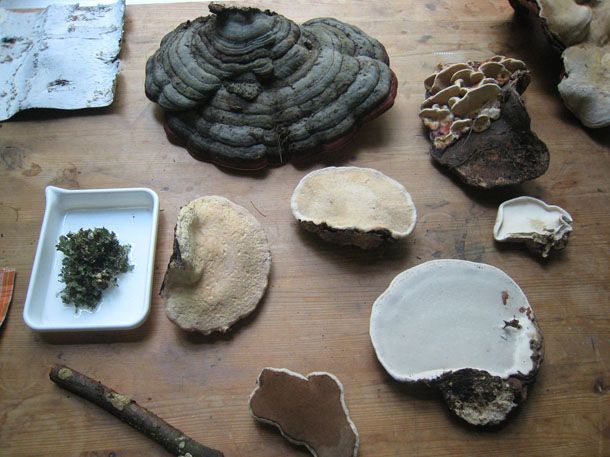
Bay Area based artist-inventor and amateur mycologist Phil Ross has an international patent pending on a method of producing fungus as a sustainable construction material. It may be surprising to hear that a biodegradable, durable, and non-toxic building material is on sale in the vegetable aisle at the supermarket. However, it’s not the tasty caps that Ross is after, but the root-like fibers of mushrooms form an enormous underground tangle called mycelium. Dried mycelium forms a lightweight mold and water resistant fire-proof material that is an effective insulator. It is also very sturdy stuff. Bob Engels of Gourmet Mushrooms notes, “Hardened steel blades on equipment at our farm need regular attention following their encounters with these massed threads of hyphae.”
Ross reported that multiple saw blades and metal files were destroyed while shaping the five hundred mycelium bricks he grew into an archway. The archway was a 6×6 foot sculpture titled Mycotectural Alpha, and was likely the first man-made structure made entirely out of mushrooms. Others have taken notice of the potential of fungus—a new start-up called Evocative Design producing mycelium alternatives to styrofoam and insulation material has received grants from the National Science Foundation, the Environmental Protection Agency, and the Department of Agriculture.
Ross’s “biotechnical” artwork encompasses drawings, paintings, sculptures, prototypes, and extensive materials research. Over the past 15 years he has been experimenting with fungus, growing and shaping mushrooms in sterile laboratory-like environments, even learning to make his own air filters to provide the necessary clean air. He says mycelium bricks can be grown in about a week from a mixture poured into a mold, but the more organic-looking mushroom sculptures that are created by adding or subtracting gas or air from their growing environment can take years to create. the artist explains how the “myotecture” bricks are made: